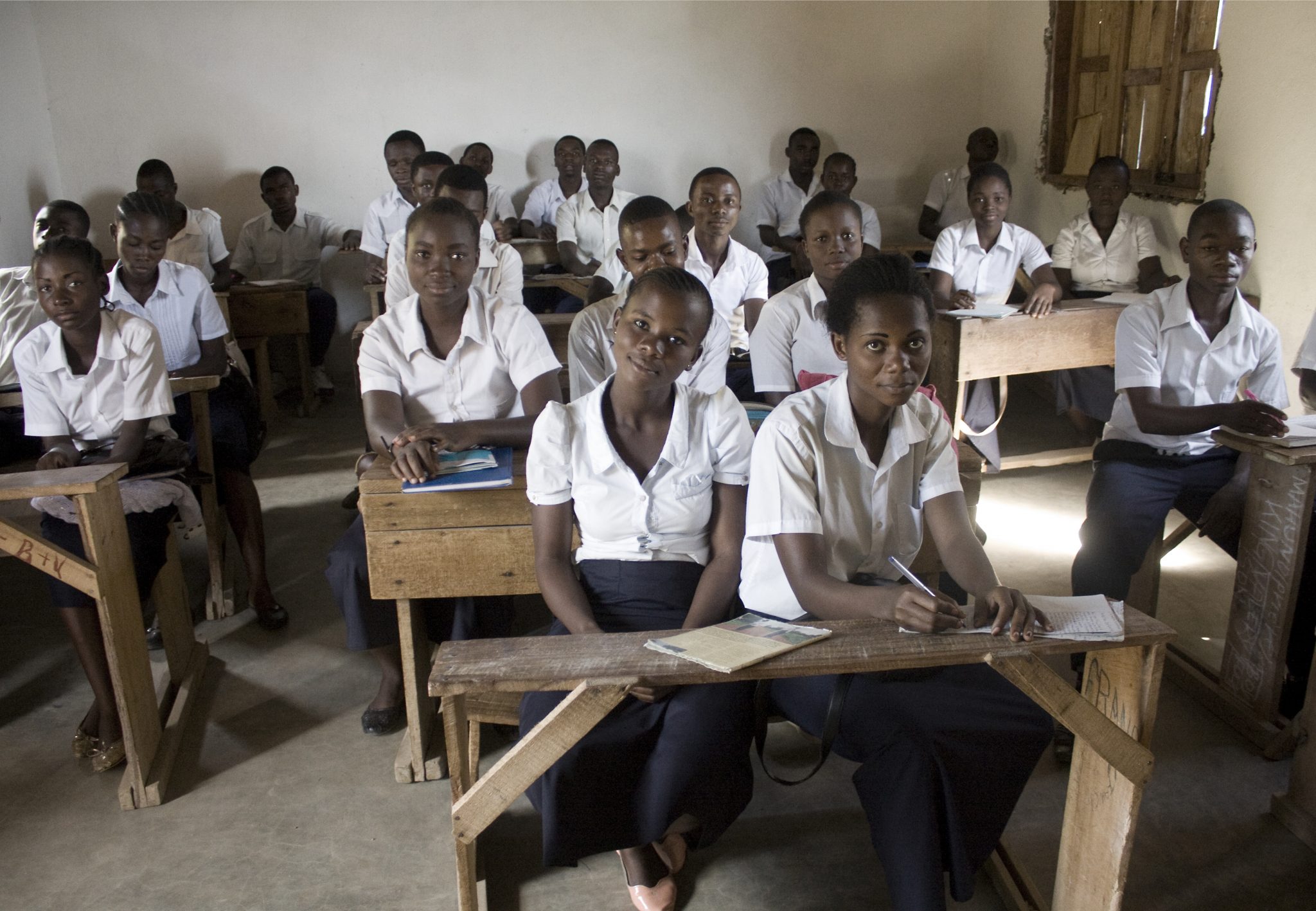DRC students overcome harassment and violence
In the Democratic Republic of the Congo, sexual harassment of girls is a common problem in schools. Our partner organisations raise awareness of the issue and ensure teachers who violate students get suspended. Together, they make schools a safer place for everyone.

Susanna Rudehill, Kvinna till Kvinna’s field representative in the Democratic Republic of the Congo (DRC), sketches the context: “In the DRC, two out of three women are subjected to violence during their lifetime. That’s a shocking number. Most of the time, this violence is committed against women in their own homes.”
In 2009, Kvinna till Kvinna began supporting the work of local partner organisations to prevent violence against women and strengthen women’s position in society. Part of that work includes changing conservative attitudes in society.
“When we question norms that are harmful to women, we simultaneously raise awareness of the damage that discrimination and violence do. We also focus on explaining to local leaders why it’s so important to include women in decision-making processes,” says Susanna Rudehill.
Girl students particularly at risk
Sexual harassment and abuse of girls at school is one of the problems tackled by Kvinna till Kvinna’s partner organisation CEDEJ-GL (Cercle d’Echange pour le Développement des Jeunes dans la région des Grands Lacs). The organisation runs special groups to which students can turn if they have been harassed. It also uses theatre as a way of educating teachers and students about women’s rights.
Angali Bashir, headmistress of a school in Uvira, mentions how girl students tend to run greater risk than their male classmates. She recounts the case of a girl who fell pregnant after being raped by a teacher.
“She was afraid to continue her education. But thanks to the work of CEDEJ-GL, the teacher in question was suspended and sanctioned. This allowed the girl to return to school and graduate.”
Fighting for safer schools
With the support of Kvinna till Kvinna, CEDEJ-GL has contributed to a discussion among decision-makers in the region about a new law against sexual harassment at school. The organisation has also provided students and teachers with tools to make their schools safer places. Rosette Mulenga Lesa is a student in Uvira:
”Thinking about my own experience, I can say I wasn’t aware of my rights until CEDEJ-GL visited our school. Thanks to them, there’s been a change in mentality, both among students and teachers. CEDEJ-GL helped us conquer our fears and feel safer.”